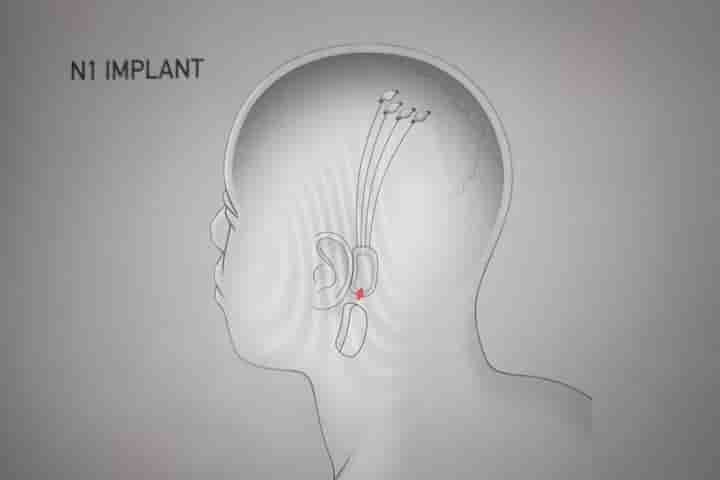

Elon Musk-owned brain computer interface company Neuralink is now recruiting its first test subjects for human trials (Pic. Courtesy IANS)
Elon Musk-owned brain computer interface company Neuralink is now recruiting its first test subjects for human trials to help those with paralysis control devices.
The company said it has received approval from the reviewing independent institutional review board and the first hospital site to begin recruitment for our first-in-human clinical trial.
“The PRIME Study (short for Precise Robotically Implanted Brain-Computer Interface) aims to evaluate the safety of our implant (N1) and surgical robot (R1) and assess the initial functionality of our wireless brain-computer interface for enabling people with paralysis to control external devices with their thoughts,” the company said in a statement late on Tuesday.
During the study, the R1 Robot will be used to surgically place the N1 Implant’s ultra-fine and flexible threads in a region of the brain that controls movement intention.
Once in place, the N1 Implant is cosmetically invisible and is intended to record and transmit brain signals wirelessly to an app that decodes movement intention.
“The initial goal of our BCI is to grant people the ability to control a computer cursor or keyboard using their thoughts alone,” said Neuralink.
The PRIME Study is being conducted under the investigational device exemption (IDE) awarded by the FDA in May 2023.
“It represents an important step in our mission to create a generalised brain interface to restore autonomy to those with unmet medical needs,” said the Musk-owned company.
Those who have quadriplegia due to cervical spinal cord injury or amyotrophic lateral sclerosis (ALS) may qualify for the six-year trial.
In March this year, the FDA had rejected Neuralink’s bid to implant a chip in a human brain over safety risks.
However, Musk’s Neuralink would not be the first to implant a brain-computer interface into humans.
Neuralink rival Synchron launched human trials on six severely paralysed patients in the US to enable them to control digital devices hands-free, using just thoughts last year in May.
Union Minister of Ports, Shipping and Waterways, Sarbananda Sonowal, said on Monday that the number…
The inhabitants of Pakistan-occupied Jammu and Kashmir (PoJK) have been enduring years of neglect as…
The Defence Research and Development Organisation (DRDO) is set to make a significant impact at…
Cyprus President Nikos Christodoulides and Prime Minister Narendra Modi on Monday viewed the mountains near…
Cyprus President Nikos Christodoulides said he and Prime Minister Narendra Modi discussed expanding bilateral ties…
Prime Minister Narendra Modi said on Monday that India and Cyprus will develop a strong…